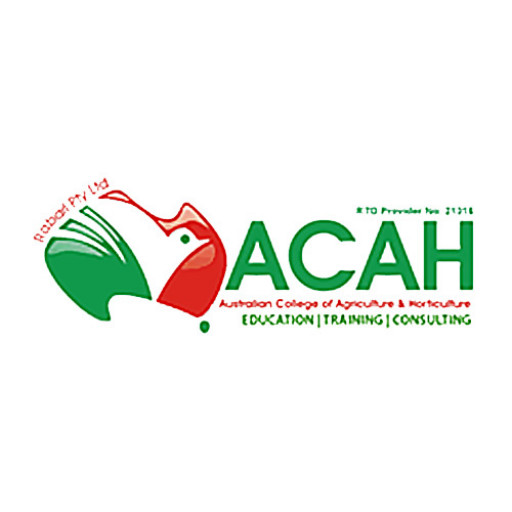Photos of university / #applyncstate
Intended for horticultural professionals and avid gardeners, this certificate in General Horticulture is designed to meet both the foundational and specialized educational needs of non-traditional students at the undergraduate level. Also open to NC State undergraduates.
Required Courses (6 credit hours)
| COURSE # | TITLE | PREQ | UNITS |
|---|---|---|---|
| HS 201 | World of Horticulture: Principles and Practices | 3 | |
| HS 203 | Home Plant Propagation | 3 |
Elective Courses (9 credit hours)
Select 3-4 courses from the following:
| COURSE # | TITLE | PREQ | UNITS |
|---|---|---|---|
| HS 200 | Home Horticulture | 3 | |
| HS 202 | Power of Plants: Appreciation and Use | 3 | |
| HS 204 | Home Landscape Maintenance | Y | 3 |
| HS 205 | Home Food Production | 3 | |
| HS 250 | Home Landscape Design | 3 | |
| HS 280 | Hands-On Horticulture | 3 | |
| HS 431 | Vegetable Production | Y | 4 |
| HS 432 | Permaculture: Sustainable Living | 3 | |
| HS 451 | Plant Nutrition | Y | 3 |
| HS 462 | Postharvest Physiology | Y | 3 |
One course (of the 9 elective credit hours) may be selected from the following:
| PP 315 | Principles of Plant Pathology | 3 | |
| PP 318 | Forest Pathology | Y | 4 |
| CS210 | Lawn and Sports Turf | 3 | |
| ENT 425 | General Entomology | Y | 3 |
| SSC 200 | Soil Science | Y | 3 |
| SSC 341 | Soil Fertility and Fertilizers | Y | 3 |
Student seeking the University Certificate in General Horticulture must have completed high school with a GPA of at least 3.0 on a 4-point scale and provide a transcript or copy of other such documentation indicating high school completion and grade point average.
The North Carolina State University offers a comprehensive financial aid program to assist students pursuing a degree in General Horticulture. Financial support is available through a variety of sources, including federal and state grants, scholarships, loans, and work-study opportunities. Undergraduate students can apply for federal financial aid by submitting the Free Application for Federal Student Aid (FAFSA), which is the primary gateway for accessing need-based grants such as the Federal Pell Grant, which helps reduce the cost burden for eligible students. Additionally, NCSU offers merit-based scholarships specific to horticulture students, which are awarded based on academic achievement, leadership qualities, and extracurricular involvement. The university also encourages students to seek external funding sources, including industry-sponsored scholarships and private grants aligned with agricultural and horticultural careers.
Loans are available to enrolled students to cover educational expenses, with options including Stafford Loans and Perkins Loans, which offer favorable interest rates and flexible repayment plans. Work-study programs are accessible, allowing students to gain practical experience while earning income to help cover costs. The university also provides payment plan options, enabling students and their families to spread out the cost of tuition and fees over manageable installments.
For international students, financial aid options may be more limited, but some scholarships and assistantship opportunities are available based on merit and departmental funding. The university's financial aid office offers personalized counseling to help students understand eligibility, application procedures, and deadlines to maximize their financial resources. Overall, North Carolina State University aims to make education in General Horticulture accessible to a diverse student body through these various financial support mechanisms, ensuring that talented individuals can succeed regardless of economic background.
The Bachelor of Science in General Horticulture at North Carolina State University is a comprehensive program designed to prepare students for diverse careers in the horticultural industry. The curriculum integrates fundamental sciences, horticultural principles, and practical skills, equipping graduates with a broad understanding of plant science, landscape management, and sustainable practices. Students engage in coursework covering plant biology, soil science, pest management, landscape design, and environmentally conscious cultivation techniques. The program emphasizes hands-on learning through laboratory work, field projects, and internships, providing real-world experience that enhances employability in sectors such as commercial horticulture, landscape architecture, nursery management, and public gardens. The faculty comprises experts in various horticultural disciplines, fostering a collaborative environment for research and innovation. The university also offers resources like research centers, student organizations, and industry partnerships to support student development and professional networking. Graduates of the program are well-positioned to contribute to urban greening projects, sustainable agriculture, and ecosystems management, reflecting the evolving needs of the horticultural industry. Overall, the General Horticulture program at NC State provides a strong foundation for those passionate about plants and environmental stewardship, preparing students to make impactful contributions in both commercial and public sectors of horticulture.





